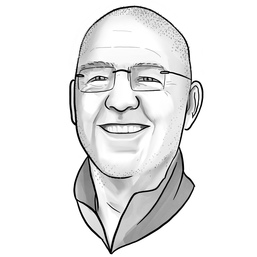_03.jpg)
UvA scientist on Brexit: ‘We could end up anywhere’
Britain’s exit from the EU is fast approaching. March 29 is the day, but there is no deal in sight. How will Brexit change science?
William Gosling, Associate Professor of Paleo-Ecology at the UvA explains: ‘It was a consultative referendum, the result of which the British government should have used as guidance as it considered different levels of participation with the EU. Instead, the government immediately opted to leave’. He continues. ‘This is a disaster and will have major consequences for science in Britain. Although the May government has announced that it will provide financial compensation to support British science once EU research funds and scholarships dry up, scientists in Britain now receive more money from Brussels than they spend. That net profit will disappear.’
Top research
Gosling’s colleague Michael Wintle, Professor of European Studies at the UvA, also fears the consequences for science in Britain. ‘European research applications usually go through a consortium of universities from at least three countries. The United Kingdom is almost always part of it and they often lead the application. In the UK, a lot of research is done by scholars from top universities such as Oxford and Cambridge. In the future, these universities may no longer be part of the application list.’
Senior UvA researcher Anne van Wageningen specialises in European higher education law. She agrees that Brexit will mainly effect research rather than education. ‘Whatever happens, however, the European Bologna agreement, in which the UK also participates, will remain in force.’
Everyone is now waiting for a new adapted Brexit deal, but will it come? ‘I don’t think so,’ says Gosling. ‘It’s the existing deal or no deal. We could end up anywhere.’

_03.jpg)